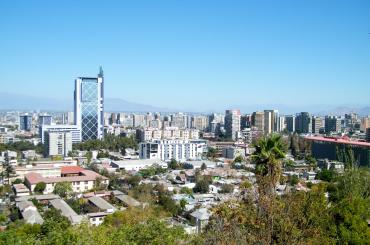
Chile
-

Valuation changes, exchange rates & risk sharing in emerging market economies
Valuation changes are crucial for understanding countries’ external positions. We analyse whether emerging market economies benefit from risk-sharing in the international monetary system through the valuation channel.
-

How do voters respond to information on local politicians’ performance?
Voters that received information about municipal education outcomes in Chile punished mayors with poor performance at the ballot box.
-

Free trade agreements and women’s employment: Evidence from Chile
New export opportunities led to a rise in hiring of female white-collar workers through changes in the use of technology and a correction of discrimination amongst Chilean firms.
-

The impacts of a non-contributory government pension in Chile
A non-contributory government pension in Chile raised life expectancy of the elderly poor, increasing food consumption and visits to health centres, and also had important knock-on effects on relatives living in the same household
-

How gender quotas influenced voting decisions in Chile
The impacts of a campaign to raise awareness of Chile’s new gender quota show how voters strategically respond to electoral laws
-

How potential offenders and victims interact: Evidence from Chile
Decoupling driver salaries from fare revenues led to a surge in crime, highlighting the role of private behaviour in victimisation
-

Market integration and the expansion of renewable energy: Evidence from Chile
Expanding electricity transmission lines reduces regional price disparities in electricity, boosts renewable energy, and lowers the overall cost of electricity
-

Fighting a losing battle: The challenges of combatting international profit shifting
Chile’s OECD-aligned tax reform did not shift transfer pricing behaviour or generate additional tax revenues.
-

How audits can stifle competitive public procurement: Evidence from Chile
Audit design can unintentionally creates incentives for simpler and less competitive procurement processes